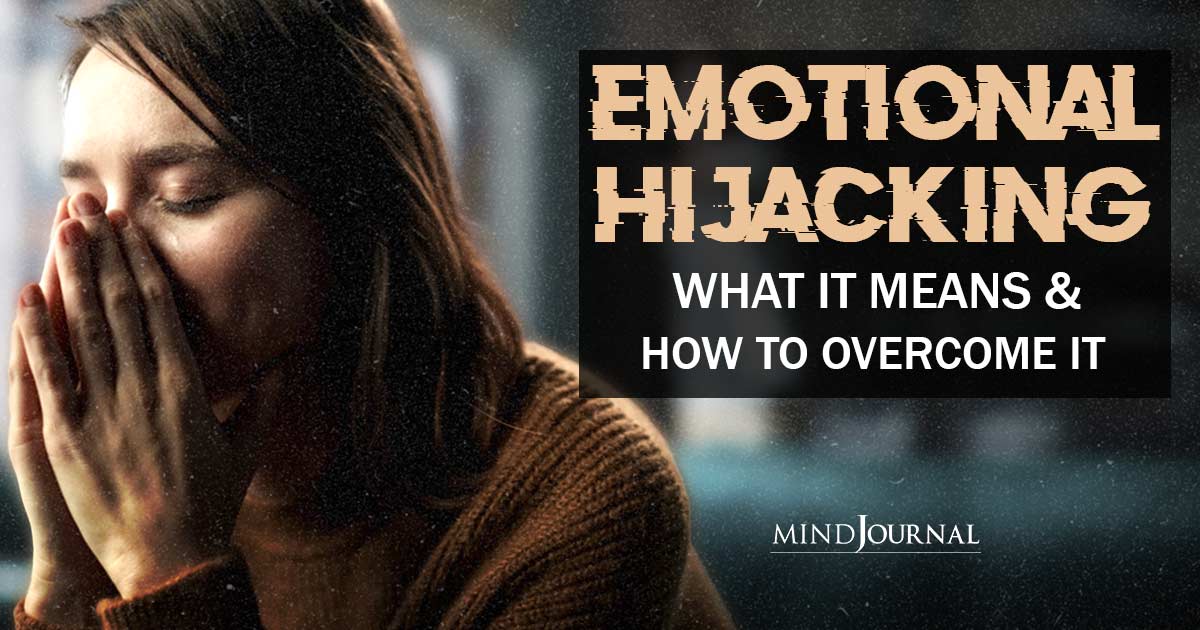Have you ever heard of the term emotional hijacking? Well, today we are going to talk about what it means and define emotional hijacking, so that it’s easier for you to understand, in case this happens to you.
Emotional hijacking is the term used for what happens when someone’s ability to think rationally becomes overpowered by their emotions. It is most commonly experienced when people lash out aggressively or become intensely fearful.
It is an intense emotional outburst triggered by what could even be innocent or innocuous.
Emotional hijacking isn’t something that just happens spontaneously. It is usually past events and experiences that an individual finds disturbing that keeps being internalized.
If that person keeps facing those problems, there is a point where the stress becomes too much to manage.
This can result in the instinctive, emotional part of the brain taking over – hijacking the rational part and the result is an explosion of extreme and intense emotions.
Related: 5 Signs Your Anxiety Hijacked Your Intuition (And How To Get It Back)
It is instant and in the case of an angry outburst can be quite destructive. If it is something that keeps happening it can have a negative effect on relationships as well as leave an impression of being emotionally unstable and unpredictable.
The mood swings can affect the mental health of not only the individual but also the people around them, People may fear doing or saying anything that triggers an outburst.
Emotional hijacking isn’t a pleasant experience. Not only for the person being hijacked but for those around them as well. There are different ways to help address emotional hijacking.

How To Cope With Emotional Hijacking?
A trained therapist can help people to learn to respond rather than react to the triggers. The therapy can also provide a space to explore and challenge the unhelpful emotion provoking thoughts.
Counselling can help explore what lies behind and triggers the outbursts. It can help exploring better ways to communicate thoughts and feelings more appropriately before it becomes an avalanche of intense terror or rage.
Counselling can help with taking ownership of yourself and look at how our actions affect our relationships with others. Building resilience and mindfulness exercises can also help reduce the intensity and frequency of the outbursts.
Written By Darren Magee
Originally Appeared On Sentient Counselling










Leave a Reply